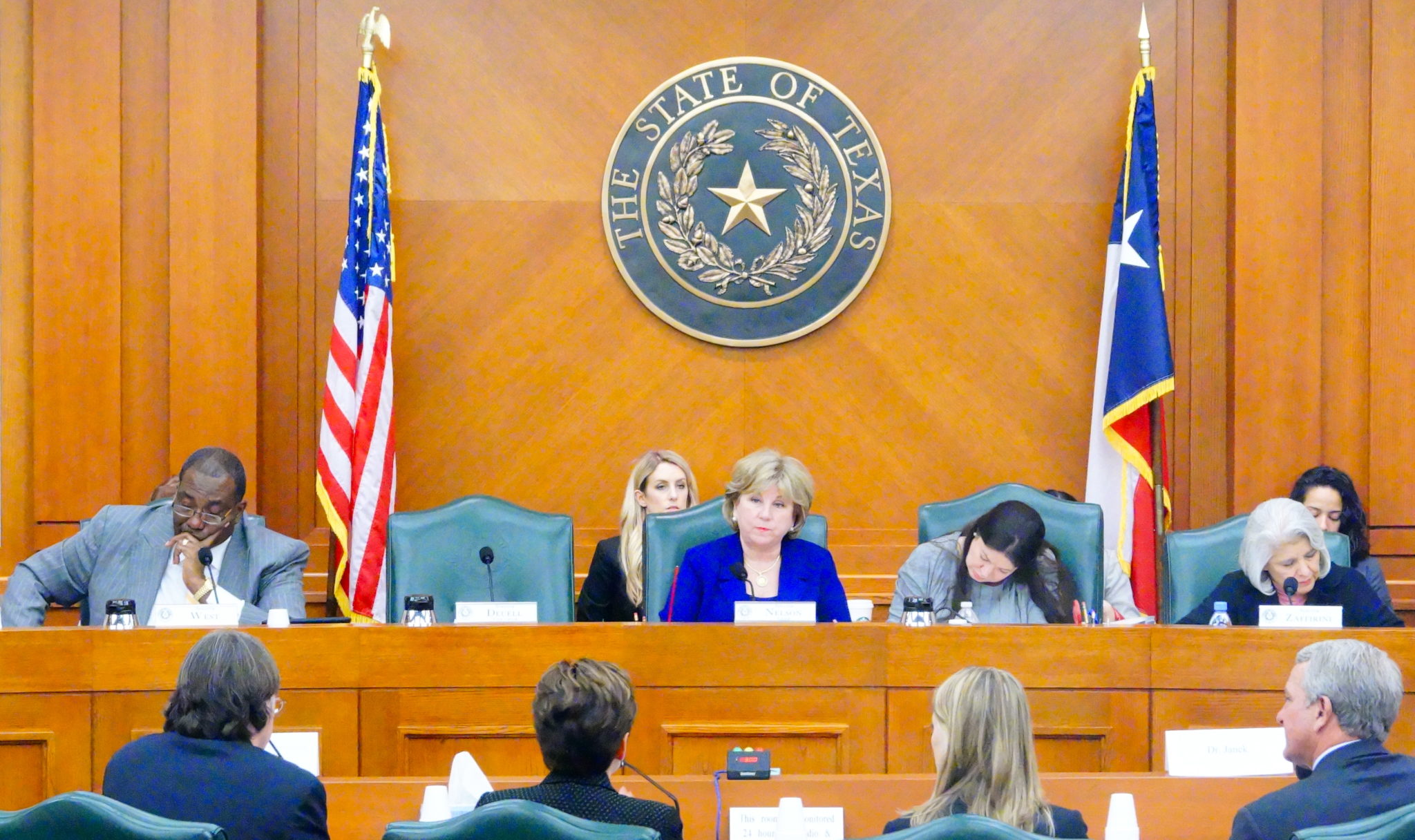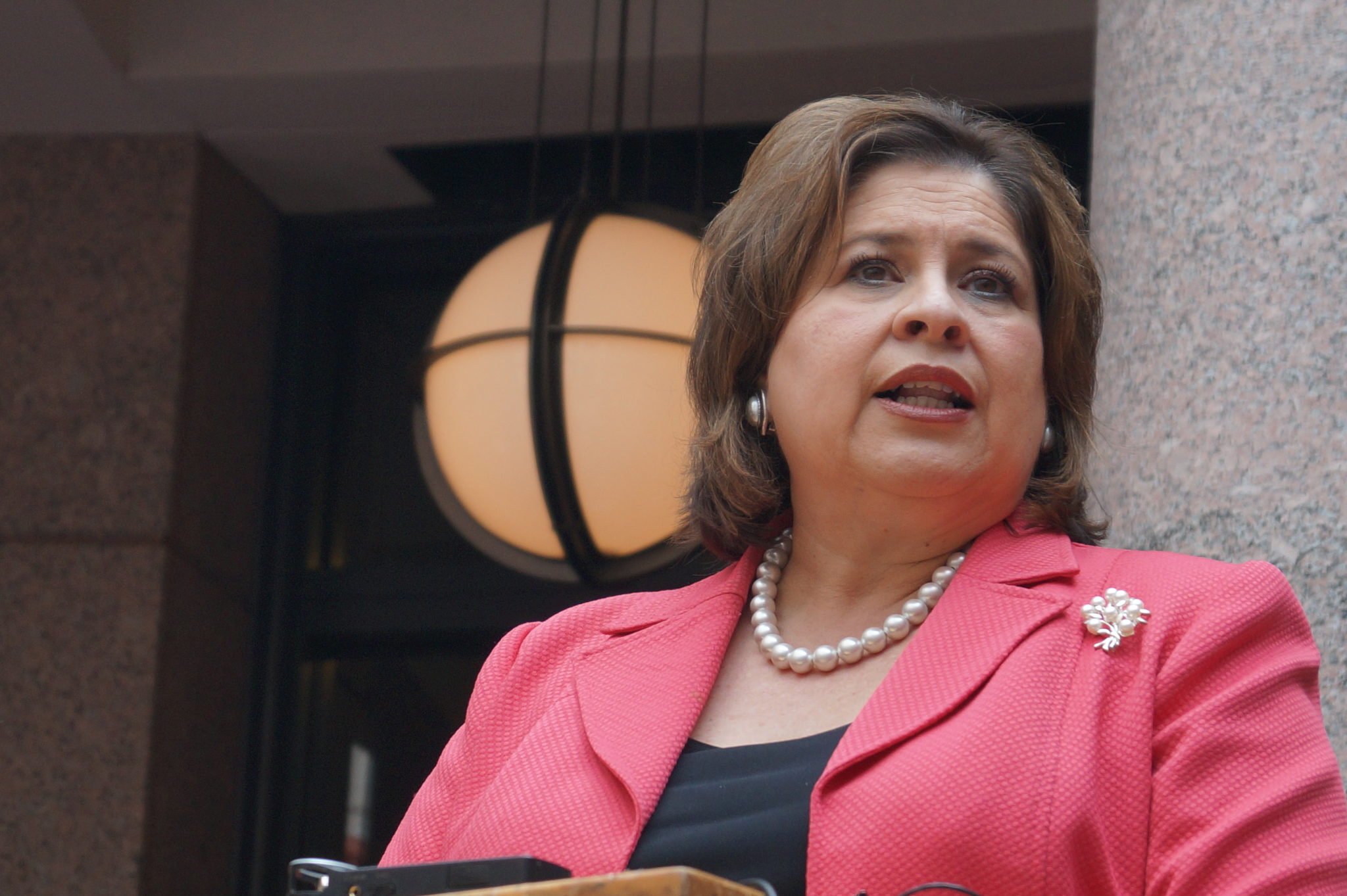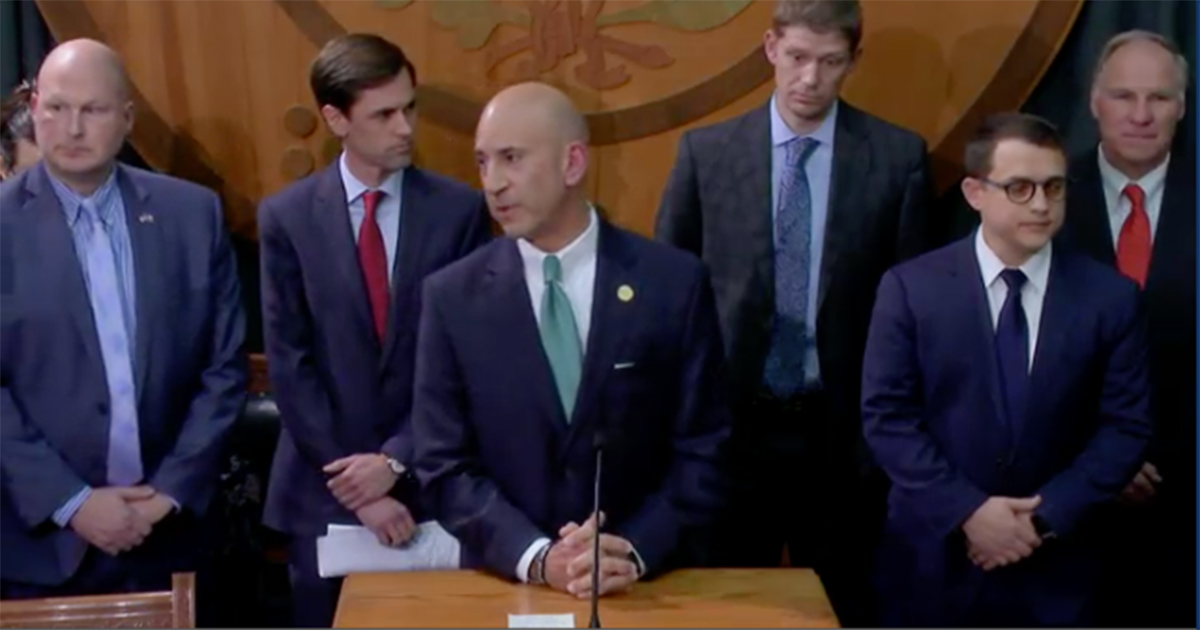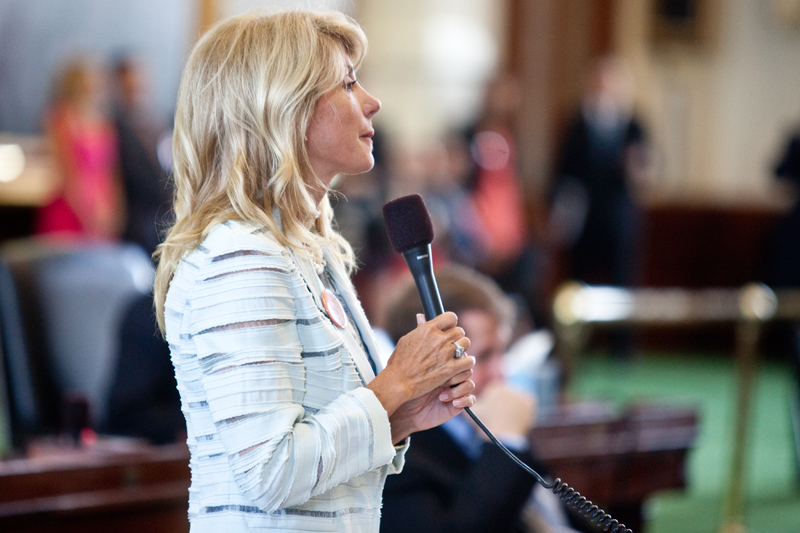
Senate Republicans: Women’s Health Programs Doing Just Fine, Thank You
State Senators Jane Nelson and Leticia Van De Putte spar from afar over Texas' health programs for women.

Above: State Senator Jane Nelson, R–Flower Mound, presides over an interim hearing of the Senate Health and Human Services Committee, February 20, 2014.
It’s been seven months since Wendy Davis’ filibuster brought national attention to reproductive rights and women’s healthcare in Texas, and the next legislative session is almost 11 months away. Now is normally the time for the interim doldrums, when legislative committees talk shop about policy issues in poorly-attended meeting rooms. That’s not what happened at yesterday’s Senate Health and Human Services Committee hearing, where an effort from pro-choice and Democratic groups to mobilize the orange-shirted mob from last summer produced a sizable turnout. Committee chair state Senator Jane Nelson (R-Flower Mound) debuted a new defense against Democratic criticisms: Women’s health care in Texas, Nelson argued, is better than it has ever been. That didn’t sit well with the orange crowd, who would note that the new abortion restrictions Nelson and her GOP colleagues passed last summer were not on the day’s agenda.
Nelson told the committee’s audience, which spilled into two overflow rooms, that she’d asked for women’s health to be added to her committee’s interim charge—a list of items they’re supposed to research for next year’s legislative session—because she cares about the issue.“Texas women should have access to family planning,” she said, touting money she helped win for programs last session. In the past, though, Nelson has repeatedly voted for the sweeping cuts to family planning that necessitated the new money in the first place. It was a rhetorical tack that made her look a bit like a kid who’s glued-up a shattered cookie jar.
For those who’ve forgotten: In 2011, a budget crisis (and conservatives’ desire to strip funding from Planned Parenthood, which provides a wide array of non-abortion related health services) led the Texas Legislature to take a hacksaw to family planning. State funding dropped two-thirds, an apocalyptic cut for a government program. As a result, 76 women’s health care clinics closed, resulting in widespread disruption to the delivery of health services. In short, the cuts wrought chaos.
In 2013, the budget got a little better, and cooler heads prevailed. The Legislature injected more money into family planning programs, and set up a (messy) framework to disburse new state money. That’s the line Nelson projected today—women’s health care in Texas is “now funded at record levels” and “Texas has the capacity to serve more women than ever before.” The interim charge, Nelson read, called on the committee to “build on previous legislative achievements.”
The state’s new system hasn’t been tested or studied—the 2014-15 biennium has barely started—but Nelson was intent to deem the new framework an unparalleled success, and seemed frustrated that anyone would question it. Of past cuts, she would only refer to the “difficult budget year” in 2011.
“One of the things I want to do today is set the record straight,” she said. “It bothers me that we’re misleading Texas women into believing services aren’t available to them.”
Kyle Janek, the executive commissioner of the state’s Health and Human Services Commission, agreed that critics weren’t seeing the whole picture. “Just because government doesn’t do it doesn’t mean it doesn’t get done,” he said.
But at times, the hearing took on an odd tone that felt a bit like a press conference. The committee’s invited witnesses had a lot to say about the excellence and due diligence of the state’s health programs, but were empty-handed when Sens. Royce West and Jose Rodriguez asked more probing questions. Witnesses had relatively little to say about the state’s abysmal teen pregnancy rate, or maternal mortality, which quadrupled between 1996 and 2010. (Texas’ has a higher maternal mortality rate than Iran, and we’re roughly tied with Saudi Arabia.)

As midday approached, Sen. Leticia Van de Putte, who played a starring role in the HB 2 filibuster, held a press conference in the outdoor rotunda, steps away from the hearing room, to talk about the state women’s health program with a number of invited guests. Planned Parenthood had helped drive orange turnout at the event, and a number of supporters stood around with signs. Representatives from Texas Right to Life stood on the second-story balcony.
Abortion may have been a forbidden topic in the HHS hearing, but Van De Putte was happy to talk about it. “You don’t reduce the number of abortions in the state by reducing access,” she said. “You do it by making it unnecessary in the first place.”
Van de Putte and Davis, so closely identified with the HB 2 filibuster, have had a tightrope to walk. Embrace abortion rights too openly, some say, and they’ll lose votes. But Thursday’s turnout—dozens of people waited more than seven hours to give public testimony to the committee—and the wild enthusiasm with which the crowd greeted Van de Putte, is a reminder of how keenly felt and important the issue remains to Texas Democrats. Fifty-one witnesses signed up to testify on the subject—they had to wait more than seven hours to do so, and gave testimony for two more before Nelson closed it down for the day.


